Vigil for slain state prisoners held Tuesday

On Tuesday, Alabama Governor Kay Ivey delivered her state of the state address in a packed gathering of legislators, staff, and supporters in the historic 1859 Alabama State Capital Building. Minutes earlier, families of deceased state inmates gathered outside the same building to protest the conditions in which their loved ones were housed by the State of Alabama and remember those prisoners who died while in state custody. The Vigil for the Victims of the Alabama Department of Corrections was organized by the Woods Foundation. The rally was held on the Capitol Steps. Nearly 100 protesters attended the event. The protestors held photos of incarcerated Alabamians who had died prematurely while in the custody of the Alabama Department of Corrections (ADOC). Following the Capitol Steps remembrance of the dead inmates, the group moved their rally to the historic Dexter Avenue Baptist Church. Woods Foundation founder Lauren Faraino addressed the rally. “We are here to wake up our politicians and wake up the people of the state of Alabama,” Faraino said. “They will tell us that prisoners should stay in prison until the last day of their sentence. They will tell us that parole is not an option. We are here to tell them that a prison sentence should not be a death sentence.” “Alabama has the highest in-custody death rate of any state in the nation,” Faraino said. “Alabama has the highest murder rate. Alabama has the highest suicide rate,” for prisoners compared to the other 52 prison systems. The Ivey administration has addressed the issue of Alabama’s overcrowded prisons by beginning construction of two new mega prisons in Elmore and Escambia Counties. “We don’t need more prisons,” Faraino said. “We don’t need to give more money to a corrupt and failing agency.” According to the Wood Foundation, the murder rate for prisoners by prisoners is eight times the national average, and most suicides are prisoners in solitary confinement. The Woods Foundation also claims that assaults by corrections officers show a “pervasive pattern [of] excessive force.” They claim that the use of batons, chemical spray, physical altercations, and kicking by the guards often result in the deaths of prisoners. They claim that the vast majority of incarcerated men in prisons are addicted to deadly drugs often brought in by prison staff. ADOC Commissioner John Hamm recently told legislators that most of the contraband (drugs, weapons, and cell phones) are thrown over the fence. The Woods Foundation alleges that rapes of inmates occur “at all hours of the day and night…occurring in the dormitories, cells, recreation areas, the infirmary, bathrooms, and showers.” Former ADOC Corrections Officer Stacy George also spoke to the protestors. George told Alabama Today that the conditions in the prison facilities are “just awful. It’s terrible.” Fariano claims that ADOC has not notified the next of kin when their relatives have died in the penitentiary. “I can’t tell you how many of the families tell me that they found out that their sons and brothers had died on Facebook,” Fariano said. The ADOC has a chronic shortage of corrections officers. The low ratio of guards to prisoners means that guards aren’t there to protect prisoners from violence by other prisoners. It also means that guards receive little oversight, and often there is no one to intervene if a prisoner attempts suicide or drug overdoses until it is too late. In her state of the state address, Gov. Ivey did not mention the high mortality of the prisoners or justice reform but did say that she supports increased pay and benefits for the corrections officers. “Here in our state, we have and we will always back the blue, and that means standing behind the men and women who serve Alabama as Corrections officers,” Ivey told legislators. “That is a tough – and too often thankless calling, not just a job, and we must continue to make increasing their salaries and benefits a priority.” George did express some optimism that raising pay for corrections officers would result in the prisons being able to recruit and retain more officers. Fariano accused the leaders of the state of Alabama of being apathetic about the plight of the prisoners. “The politicians of the state of Alabama do not see these faces as victims, but they are victims,” Fariano said. The state of Alabama has been accused by the U.S. Department of Justice of having prison conditions so poor that it constitutes cruel and unusual punishment and is unconstitutional under the eighth amendment. The legal costs of defending against that and other lawsuits is costing ADOC funds that could otherwise be going to improve prison conditions or adding staff. Federal Judge Myron Thompson has ordered the state to hire an additional 2,000 corrections officers in a lawsuit brought on behalf of current and former prisoners by the Southern Poverty Law Center (SPLC). ADOC has adopted a new healthcare provider and attempted to improve mental health services for prisoners to address the issues brought up in that litigation. However, the number of guards has declined since Judge Thompson gave that order. The legislature has boosted funding for ADOC after years of neglect. ADOC received a state general fund (SGF) appropriation of $595 million in fiscal year 2023, as well as $400 million in American Rescue Plan Act (ARPA) funds to kickstart construction of the new mega prisons. To connect with the author of this story or to comment, email brandonmreporter@gmail.com.
Former corrections officer Stacy George is supportive of expedited release of inmates

On Tuesday, the Alabama Department of Corrections made headlines when it released 90 inmates in a supervised release with ankle monitors. The release has been criticized by some members of law enforcement denounced the move, but former correctional office and gubernatorial candidate Stacy George released a statement in support of the decision. “I fully support Governor [Kay] Ivey, the Alabama State House, the Alabama State Senate in the 2015 legislation and the amended bill in 2021 that is associated with this release,” George said. “As a former 13-and-a-half-year veteran Correctional Officer in the State of Alabama assigned to the largest prison (Limestone Correctional Facility). I have taken inmates to the bus station who have been released under Mandatory Release, Spontaneous Release, and End of Sentence (EOS).”05 George is a former Morgan County Commissioner. He twice ran for the Republican nomination for Governor in 2014 and 2022. George recently left his job as a corrections officer for the Alabama Department of Corrections (ADOC) and has advocated for better treatment for convicts. “As a two-time cans Officer at Limestone prison, I have attended many prison reform meetings as well,” said George. “I remember being in a meeting in Shelby County at the ATF. I remember one statement that was stated pertaining to this very issue. No inmate should ever EOS (End of Sentence) from an Alabama prison. They should be paroled out 3 years before they EOS from prison. This allows the inmate to be monitored with various devices and drug tested to be certain they are ready to re-enter society. If you just simply let them EOS (End of Sentence) you have no way to monitor them.” The state released 80 Alabama prisoners with ankle monitors on Tuesday due to the 2021 justice reform law that orders ADOC to release inmates approaching their end of sentences to spend the final few months on supervised release. An estimated 412 inmates are eligible to be released under the new law. The Alabama Bureau of Pardons and Paroles is tasked with supervising them during their period of supervised release. Alabama Attorney General Steve Marshall, several district attorneys, and members of law enforcement have expressed their concerns about the plan. “There are many inmates in the Alabama prison system who, if given a chance, could re-enter society and be a model citizen,” George said. “I know this because I have been there in prison with them as an Officer on the ground for over 13 years. There are people who never should get out of prison as well. This is why the Alabama Pardons and Paroles is such an important department in Alabama. Sometimes inmates need some monitoring to stay on the right track in this crazy world we live in. I can give a different perspective on this issue because I have been that guy who dropped off an inmate at the bus station with 10 dollars and a bus ticket to the same place that sentenced them. I do not think people should panic over this issue. It just needs to be explained a little different way.” The remaining prisoners will be released in phases. One hundred thirty-two have been released through Thursday. The Department of Corrections has stated that it will release another 200 prisoners in the coming days. ALDOC is reportedly notifying their victims prior to releasing the prisoners – most of them convicted of violent crimes – including murder. To connect with the author of this story or to comment, email brandonmreporter@gmail.com.
Parole denied for 90% of Alabama inmates, a new low
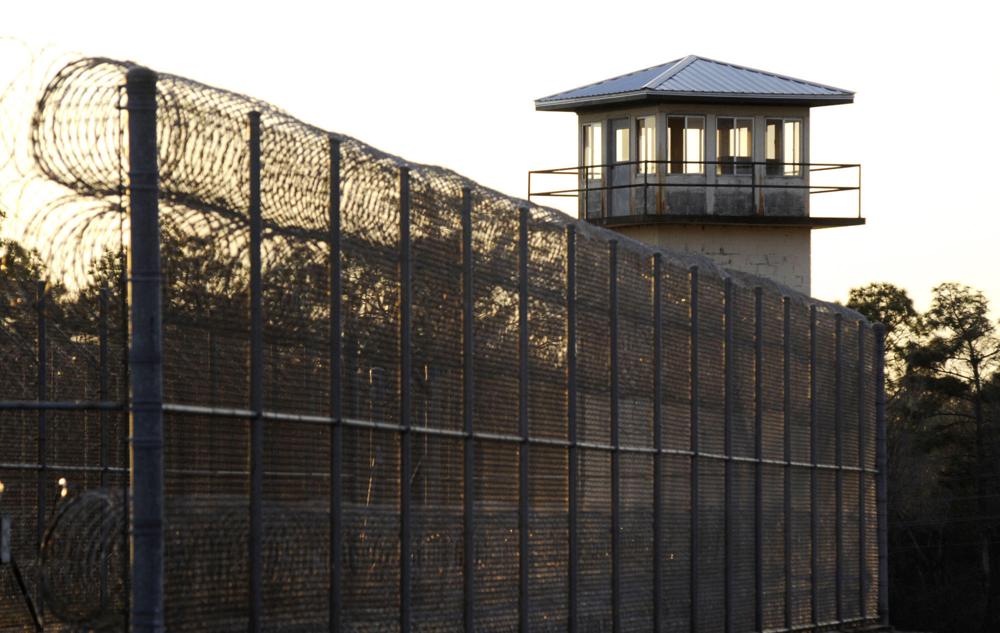
Seventy-one-year-old Leola Harris is confined to a wheelchair, must undergo dialysis three times a week, and is in end-stage renal failure, her attorney said. After serving 19 years of a 35-year murder sentence, the frail woman is not a threat to anyone and should be released to a nursing home to live out her final days, he argued. The Alabama Parole Board disagreed and last week denied her parole after a brief hearing. She won’t be eligible again until 2028. The rate of state inmates being granted parole in Alabama has plummeted to a new low, with 90% of eligible inmates being rejected last fiscal year, according to agency reports. Critics of the decline say the board is not following its guidelines, and denial has become the default decision. “This denial is an injustice and a waste of tax dollars,” said former Alabama Chief Justice Sue Bell Cobb, who now heads Redemption Earned, which represented Harris. The group is a nonprofit law firm that represents aged and ill inmates whom the organization determines are worthy of release. “They are supposed to ask if someone has been adequately punished. She’s 71 and has served 19 years, without violations in 12 years,” Cobb said. “Then the next question is: Do they pose a risk to public safety? The woman is in a wheelchair and cannot even go to the bathroom by herself. She’s dying, and they just denied her parole. It is an injustice. It is shameful.” Harris’ parole was opposed by Victims of Crime and Leniency, an advocacy group for victims and their families, and the state attorney general’s office. They argued against Harris’ release because she was convicted of murder. Harris was convicted of murder for the 2001 killing of Lennell Norris, who was found dead at her kitchen table. Harris testified at her trial that Norris was a friend who would often come by her house at night but maintained she did not shoot him and that someone else was in the house that night. The three-member board granted parole to 409 inmates and turned down 3,593 others in the fiscal year that ended September 30, according to records from the Alabama Bureau of Pardons and Paroles. The grant rate of 10% is a fraction of what it had been in previous years and comes after four straight years of decline. The rate was 31% in fiscal year 2019 before falling to 20% in 2020 and then 15% in 2021. Parole board Chairwoman Leigh Gwathney declined to comment to questions submitted through an agency spokesperson. State Rep. Chris England, who has called for changes on the board, argued political concerns are driving the limited releases. “Folks that are pushing this process where we don’t release anyone are more concerned with headlines than they are with public safety,” England, D-Tuscaloosa, said. Leah Nelson, research director at the legal nonprofit Alabama Appleseed Center for Law and Justice, said the state is creating “conditions for combustion” within prisons that the U.S. Department of Justice has said are already among the most violent in the country. “We have a parole board that evidently is finding that no one meets whatever standard it has in mind. No one has any hope. We have a despair machine,” Nelson said. In 2020, guidelines were put in place, including a scoring system, to determine if release is recommended. The board conformed to the guidelines about 30% of the time, according to state records. Cam Ward, executive director of the Alabama Bureau of Pardons and Paroles, said the guidelines are just that. “The law says it’s up to the board. They have total discretion,” Ward said. He cautioned about comparing parole rates to the years before 2019, because of sentencing changes. A horrific crime in north Alabama led to changes at Alabama’s parole board. In 2018, eight months after Jimmy O’Neal Spencer was released on parole, he was charged with killing three people, including a 7-year-old and his grandmother. In 2019, Alabama Gov. Kay Ivey signed legislation overhauling the board appointment process. “If these folks are upset about the number of inmates paroled, they should come every day and listen to the horrible crimes they committed. They would understand why these violent offenders should serve their sentence,” Janette Grantham, executive director of Victims of Crime and Leniency, wrote in an email. Alabama Attorney General Steve Marshall defended the low parole rate. “By law, the paramount duty of the board is to ensure public safety—not to appease the anti-incarceration community,” his office said in a statement released through a spokesman. Stacy George, a former corrections officer who has been outspoken about prison conditions, said he believes the board should hear from inmates directly, at least remotely via computer, and find out more about their circumstances. People eligible for parole in Alabama currently do not appear before the board. “There are people that never need to actually get out of prison, but there are people that do need to get out and get a second chance,” George said. Republished with the permission of The Associated Press.
8 prisoners died in Alabama prisons last week

For the last few years, the Alabama Department of Corrections (ADOC) has been in the news for concerning reasons. In 2021, the U.S. Department of Justice (DOJ) accused ADOC of running the most dangerous prison system in the country and sued the state, claiming that a sentence to an Alabama prison constitutes a “cruel and unusual punishment” and is thus an unconstitutional violation of the Eighth Amendment. The DOJ even filed an updated complaint in their ongoing lawsuit against Alabama over prison conditions arguing that violence remains unabated in facilities that are both overcrowded and “dangerously” understaffed. “In the two and a half years following the United States’ original notification to the State of Alabama of unconstitutional conditions of confinement, prisoners at Alabama’s Prisons for Men have continued daily to endure a high risk of death, physical violence, and sexual abuse at the hands of other prisoners,” the Justice Department wrote in the complaint signed by U.S. Attorney General Merrick Garland. Alabama prisons reported eight deaths last week, reported the Montgomery Advisor. ADOC said its Law Enforcement Services Division is investigating each of the deaths but hasn’t released any details. According to the report, each person was “found unresponsive.” In September, Alabama prisons were filled to 164.9% of their designed capacity. In a recent Alabama Today report, former corrections officer Stacy George explained just how bad conditions are in Alabama prisons. In fact, he’s written a book about it. George is just the latest ADOC officer who, overwhelmed by the hours, personal risks, and conditions of the state’s prisons, has left government service. George is a former Morgan County Commissioner and has twice run for the Republican nomination for Governor of Alabama (2014 and 2022). George said that the prisons are so understaffed that he fears that the inmates could potentially take control of one or more of the overcrowded facilities. “At any time, they can take a prison,” George warned. “It is a danger to the officers, the people that work there. The public is in danger.” 2022 has been an especially deadly year in Alabama prisons. Through September, 179 people died in the state’s prisons. That exceeds the year-end total for every year on record except one for 2020, when the COVID-19 pandemic spread through prisons. July 2022 was the deadliest month on record in Alabama prisons. Here is a list of the men who died last week: Justin Wade Hopkins, 39, died on November 22 in Elmore Correctional Facility. Hopkins was discovered unresponsive in his dorm. He was transferred to the prison infirmary, where he was pronounced dead, ADOC said. Willie A. McCall, 67, died November 23 in St. Clair Correctional Facility. Discovered unresponsive on the dorm floor in St. Clair, McCall was taken to the infirmary, where he was pronounced dead. Cameron Holifield, 22, died on November 24 in Staton Correctional Facility. Found unresponsive in his dorm, he was taken to the prison infirmary, where he was pronounced dead. Grady Anthony Lee, 44, died the same day in Bibb Correctional Facility. Found unresponsive in his dorm, he was taken to the health care unit, where he was pronounced dead. Barry Christopher Culver, 25, died on November 25 in St. Clair Correctional Facility. He was found unresponsive on his bed, where he was assessed by medical personnel and pronounced dead. Jason P. Hopkins, 36, died on November 25 in Elmore Correctional Facility. He was taken to the health care unit after he was found unresponsive on his bed. Medical staff responded, but he was pronounced dead. Jimmy R. Hurst, 89, also died on November 25 at Limestone Correctional Facility. Hurst reported to the infirmary with “certain symptoms” before he “became unresponsive.” He died there. Joseph Edward Nichols, 46, died on November 27 in Ventress Correctional Facility. He was found unresponsive in his dorm and taken to the prison infirmary, where he was pronounced dead. U.S. Judge Myron Thompson has ordered ADOC to hire 2,000 more guards – a mission that the troubled system has failed to do despite three years of trying.
Jimmy Blake hits Kay Ivey on dark money

In the closing days of the gubernatorial campaign, the Libertarian nominee for governor – Dr. James “Jimmy” Blake has attacked incumbent Governor Kay Ivey for accepting large donations from a dark money group in Virginia. Blake spoke with Alabama Today about this issue on Wednesday. “It avoids being honest with the people of Alabama,” Blake said when asked if taking the money was an attempt to violate the spirit of Alabama’s ban on Pac to Pac transfers law. By donating to the nonprofit corporation in Virginia, the group is able to donate to Ivey’s campaign without disclosing the true source of the money. “It could be the companies building the Governor’s new prisons. we just don’t know,” Blake stated. “Kay Ivey has received 1.7 million in Dark Money,” Blake’s campaign wrote on Facebook. “We don’t know who donated this dark money. But the mailing address for it is the same building as the Republican Governors Association in Northern Virginia. Don’t let dark money buy this election. Vote Dr. Jimmy Blake for Governor of Alabama!!!” Blake referenced a report from WBRC Fox 6 during the primary season that the Ivey campaign received two extremely large “dark money” contributions from a non-profit corporation in northern Virginia. This corporation does not have to report where the money came from. Then Republican gubernatorial primary candidate Stacy George made an issue of the dark money during the primary, but voters still preferred Ivey over him and the other seven Republicans in the May 24 primary field. George, who recently quit his position with the Alabama Department of Corrections (ADOC), is again making headlines again for his criticism of conditions within the prison system. Blake has also criticized Ivey for her handling of the prisons and the “inhumane” conditions there that are drawing national headlines. In 1986, the Alabama Democratic Party had commanding supermajorities in the Alabama Legislature, and Democrats dominated the courts and controlled how the constitutional statewide positions, including the governor’s office. Today, the Alabama Republican Party has commanding supermajorities in the Alabama Legislature, and Republicans dominate the courts and control how the constitutional statewide positions, including the governor’s office. “The power players have stayed the same they just changed from blue Democratic jerseys to red Republican jerseys,” Blake maintains. “Our state has been highjacked by big government Republican insiders who in the primary nudges out the honest small government conservatives,” Blake said in a video on his Rumble account. In addition to attacking Ivey, Blake has turned his attention to the Republican nominee for U.S. Senate Katie Britt whom Blake called a “lobbyist for big government Washington special interests.” Blake has endorsed his friend, the Libertarian nominee for U.S. Senate, John Sophocleus, in the Senate race. Blake is a medical doctor, former Birmingham City Councilman, former owner of American Family Healthcare – Birmingham’s first urgent care clinic, and former chairman of the Libertarian Party of Alabama. He has a bachelor’s degree from Auburn University and a medical degree from UAB. The are 65 Libertarian candidates running on the ballot this November. “We believe that the ship of state must be turned back into the direction of more freedom and less government control,” Blake said. Democratic nominee for Governor Yolanda Flowers will also appear on the ballot along with Blake and Ivey in Tuesday’s election. Pastor Dean Odle and independent Jared Budlong are running as write-in candidates. Voters will go to the polls and vote on their leaders for numerous offices on Tuesday. They will also vote on ten constitutional amendments as well as whether or not to ratify a proposed recompiled version of Alabama’s 1901 Constitution. To connect with the author of this story, or to comment, email brandonmreporter@gmail.com.
Stacy George warns that understaffed prisons pose a threat to public safety

Stacy George is a former Morgan County Commissioner. George, a published author, has twice run for the Republican nomination for Governor of Alabama (2014 and 2022). However, for the last 13 and a half years, George has worked as a corrections officer for the Alabama Department of Corrections (ADOC) – until yesterday. George is just the latest ADOC officer who, overwhelmed by the hours, personal risks, and conditions of the state’s prisons, has left government service. George told Alabama Today on Thursday that he is frustrated by the “inhumane” conditions and is planning a new book exposing the problems at ADOC titled: At what point does punishment become revenge? George takes pride that the fact that in his time in ADOC service, he never had to use force on an inmate. “I have never had to spray an inmate, and I have never had to use a baton on one,” George said. “I usually don’t even carry a baton.” George said that the prisons are so understaffed that he fears that the inmates could potentially take control of one or more of the overcrowded facilities. “At any time, they can take a prison,” George warned. “It is a danger to the officers, the people that work there. The public is in danger.” George charged that often there are only 8 guards on duty at night (and sometimes as few as six) at an ADOC facility that holds 2,300. “There is no telling what they would do to the women in there if they took control,” George said, referring to the women officers that ADOC has hired to work in the prisons. George said that he has been tasked with taking the inmates to the showers even though the facilities are chronically understaffed. “That’s a job for three officers, and I have had to do it by myself,” George said. “When one has to go to the hospital, that is a job for three officers, and I have had to do that by myself. If he gets by me, he is loose in the hospital, and their guards aren’t even armed. I am thinking, what if I have to go to the bathroom while we are there?” “They told me I cannot even provide them with soap,” George continued. “When are we going to get some soap?” George said that he has had to frequently serve as the only guard on an entire cell block – normally a job for three guards and that there have even been shifts where they did not have a guard for each area, so in some of the dorms, the prisoners “just had to police themselves.” U.S. Judge Myron Thompson has ordered ADOC to hire 2,000 more guards – a mission that the troubled system has failed to do despite three years of trying. George said that ADOC depends on its officers working overtime to keep the facilities guarded. “When I go in there, I bring my lunch and my dinner because I don’t know when I am coming out. It could be ten hours, 12 hours, or 16 hours,” George said. “I am going to go to my grandson’s birthday party. I have not seen him for a year, I am going to be able to go to my Church, where they only see me about once a month.” The U.S. Department of Justice has accused ADOC of running the most dangerous prison system in the country and has sued the state claiming that a sentence to an Alabama prison constitutes a “cruel and unusual punishment” and is thus an unconstitutional violation of the Eighth Amendment. “How we treat them is shameful,” George said. “There are only two nurses for 2,300 inmates.” George said that in his tenure at ADOC, he has had to deal with between 50 and 100 stabbings of inmates. “It’s way over 50 – it could be a hundred,” George said. “One time, we came in, and there were blood trails all over the place. It took us four hours to find all the (stabbed) prisoners because there we were so short-staffed.” George said that inmates attempting, or threatening suicide, is a frequent occurrence. “The inmate said he was going to kill himself, and he cut himself with a razor blade,” George said. George then called for help, and the supervisor on the other end of the line asked, “How bad is he bleeding? Do you think he is trying to kill himself, and I said yes.” The inmate did not die. “There are prisoners down on the ground flopping in diabetic comas, and you don’t know whether it is that or a drug overdose,” George said. George said that he was involved in an accident a year ago, and since then, walking up and down the stairs inside the facility has become difficult for him. ADOC knew of his difficulty but did not give him any accommodations, ultimately leading to his resignation. “They have called and offered me two jobs since then,” George said of ADOC. George said that he is holding a press conference in front of the Department of Corrections headquarters in Montgomery on Friday. “I am going to blow the doors off of this system,” George said. To connect with the author of this story, or to comment, email brandonmreporter@gmail.com.
Gov. Kay Ivey avoids runoff in Republican primary
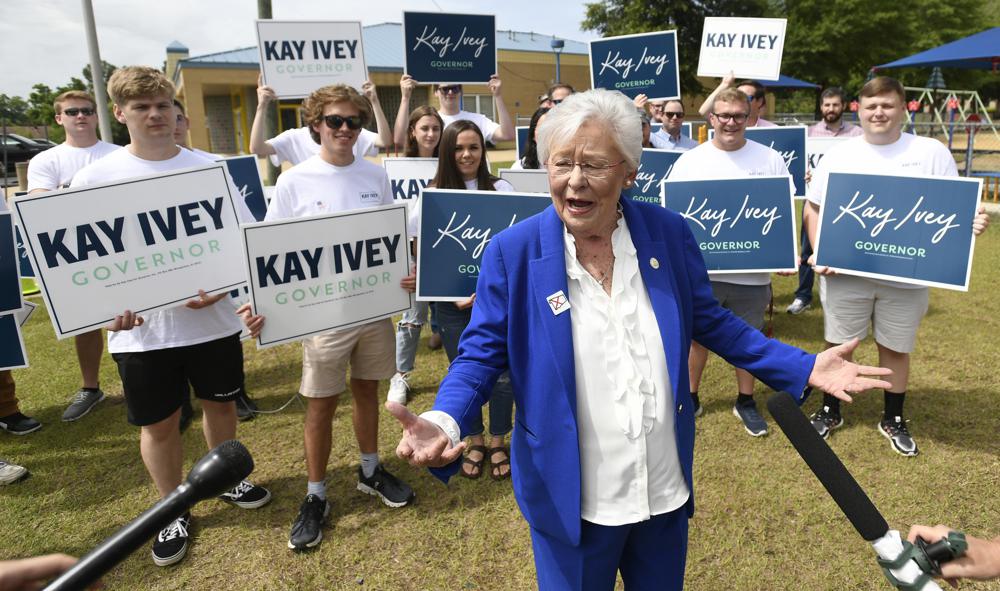
Alabama Gov. Kay Ivey has turned back eight primary challengers to win the GOP gubernatorial nomination without a runoff in a race that pushed her far to the right. Over the course of the campaign, Ivey repeated former President Donald Trump’s false claims about election theft. Then, the white-haired, 77-year-old Ivey sat at her office desk and pulled three things out of her purse for a campaign commercial: a lipstick, a cellphone, and a revolver. One challenger, former Trump ambassador Lindy Blanchard, slammed Ivey for doing too much to control COVID-19 in a state with one of the nation’s worst pandemic death rates. Another, toll bridge developer Tim James, the son of former Gov. Fob James, did the same and attacked a charter school that opened under Ivey’s watch to cater to LGBTQ youth. Other challengers include Lew Burdette, a former business executive who runs Christian-based group homes; Stacy George, a prison officer and former county commissioner; pastor Dean Odle; GOP activist and businessman Dean Young; Springville Mayor Dave Thomas; and a yoga advocate, Donald Trent Jones. The eventual GOP nominee will face whoever emerges from a Democratic primary runoff between state Sen. Malika Sanders-Fortier of Selma and Yolanda Rochelle Flowers, a career educator from Birmingham. Lieutenant governor at the time, Ivey was catapulted to the state’s top office when Robert Bentley resigned amid scandal in 2017. She easily dispatched four Republican primary challengers and won a full term against a well-financed Democrat, Tuscaloosa Mayor Walt Maddox, in 2018. Ivey has pushed a plan to construct new lockups to upgrade Alabama’s crowded, dilapidated prisons, which are the subject of a Justice Department lawsuit, and she passed a gasoline tax hike with automatic increases to fund road work. Challengers have criticized all that as too much big government and also zeroed in on her handling of the pandemic. While some bash Ivey over a COVID-19 response that left the state with nearly 20,000 dead and the nation’s fourth-highest death rate, Republican opponents have hammered her for shutting down businesses and churches to prevent the spread of disease. In a state where roughly 51% are fully vaccinated, Ivey’s claim that it was “time to start blaming the unvaccinated folks” for illness could come back to haunt her. Republished with the permission of The Associated Press.
Election 2022: Nine Republicans, six Democrats in Alabama gubernatorial primary

A crowded field of Alabama gubernatorial candidates are on the ballot next week as voters head to the polls for the state’s partisan primary election. Nine Republicans and six Democrats are vying for the top-level post in the May 24 primary. The ultimate victor will be decided in the November 8 general election. Republicans Incumbent Gov. Kay Ivey is seeking reelection as her first term comes to a close. Two other Republican candidates have past or present political experience, meaning many of this year’s hopefuls are new to the political arena. Ivey has held other state-level positions in the past two decades. Prior to winning the governor’s race in 2018, she ran for two consecutive terms as lieutenant governor – 2010 and 2014 – and also had a stint as a state treasurer for two terms, beginning in 2002. “I believe in standing up for the little guy, and fighting for the forgotten,” Ivey wrote on her campaign website. “It’s what I’ve done all my life, and that’s not changing now.” Several other candidates on the Republican ticket have prior political experience at various levels of government. Stacy George, for example, served two terms as Morgan County commissioner, from 2000 to 2008. “For as long as I can remember, following in my father’s footsteps, I knew I wanted to dedicate myself to public service,” George wrote on his campaign website. “I want to work for the people of Alabama as governor and give the people a government that works for them.” Dave Thomas is another Republican challenger with past political experience. He served as a state legislator from 1994 to 2002. “You need a representative that will support your ideas, fight for the needs of your community and earn your respect,” Thomas wrote on his campaign page. A number of other Republican candidates have garnered the spotlight this campaign season, in terms of donations and political messaging, as the primary has drawn closer. Lindy Blanchard has touted her family’s deep Alabama roots, and Lew Burdette has noted his business acumen. Tim James has pointed to his namesake company – which specializes in infrastructure projects – as an asset. Rounding out the list of candidates on the Republican ticket are yoga instructor Donald Trent Jones, who has run on the platform of “Make Alabama Grateful Again”; Dean Odle, who is taking aim at so-called “fake Republicans”; and Dean Young, who aspires to bring faith back into government. Democrats One of the six Democratic gubernatorial candidates, Malika Sanders-Fortier, has a background in politics. Sanders-Fortier has represented District 23 in the Alabama State Senate since 2018. “It’s harvest time in Alabama,” Sanders-Fortier wrote in a campaign statement. “Let us encourage everyone to invest their time, talent and treasure in our state, so Alabama prospers, and the dream of the community comes true.” Other Democratic gubernatorial candidates on the ticket include Yolanda Rochelle Flowers, whose background includes speech pathology; Patricia Salter Jamieson, who has worked in clinical health and ministry; and Arthur Kennedy, an educator. Rounding out the list of Democratic candidates are Chad “Chig” Martin, who has worked in such disparate industries as hemp and mobile homes; and Doug “New Blue” Smith, a businessman and former political staffer. Issues This campaign season, a number of hot-button issues – many reflecting challenges seen across the country – have been bubbling to the surface as the candidates face off and vie for the top-level post in Montgomery. The list includes Alabama’s 10-cent gas tax, job growth, prison reform and education. Against the backdrop of skyrocketing gas prices, candidates have given different takes on the state’s fuel tax, which was implemented in 2019 and includes provisions of future 1-cent incremental increases. Ivey in recent statements on the topic has pointed the finger at the federal government and widespread inflationary pressures as reasons Alabama’s tax is a talking point this year. But other candidates have taken a more hard-lined stance on the issue. “I will repeal the gas tax of 2019 immediately,” George wrote on his campaign site. On her site, Blanchard wrote, “I will never participate in the kind of backroom deals that were the precursor to the gas tax increase that has been devastating to Alabama families.” The support of marijuana legalization also been raised this campaign season in Alabama. Supporters include Salter Jamieson, who indicated on her campaign page she favored it, along with ending the sentences of anyone found guilty in past nonviolent convictions. A candidate on either party ticket must receive more than 50% of the vote total on May 24 to advance to the fall general election November 8. If no candidate wins the majority, a runoff election will be held June 21 between the top two vote-getters.
Jim Zeigler will not run for Governor

State Auditor Jim Zeigler said Sunday he will not run for Governor this year. Zeigler set up an exploratory campaign in August 2021, and says he received support and encouragement to run instead for a down-ballot state office to remain in state government. He must decide and qualify by January 28. “Even though I get a lot more bang for the buck,” Zeigler remarked, “the Governor’s race has attracted a massive amount of money from well-funded challengers. Three candidates alone have already raised in excess of $10M.” Zeigler has served two terms as State Auditor and is limited by the state constitution from running for a third consecutive term. While serving as State Auditor, Zeigler formed a citizen’s group in 2019 to oppose the plan by ALDOT to charge a $6 toll each way between Mobile and Baldwin counties over the I-10 Bayway. The group grew to 51,000 members and successfully blocked the toll plan. Zeigler says he has always been an advocate for the people of Alabama and will keep fighting in whatever capacity they elect him to serve. “Alabama taxpayers need a consistent voice in state government to defend our constitutional rights and fight government overreach.” Official reports on the Secretary of State’s site shows campaign cash on hand of gubernatorial candidates: Kay Ivey $2.8 million Lindy Blanchard $6.3 million Tim James $1.66 million Jim Zeigler $22,000 Other candidates for governor are former Morgan County Commissioner Stacy George; King’s Home exec Lew Burdette; Rev. Dean Odle who heads a Lee County Church and school; and Springville Mayor Dave Thomas. Zeigler is now starting his final year as auditor.
Tim James opens gubernatorial campaign with evangelical appeal
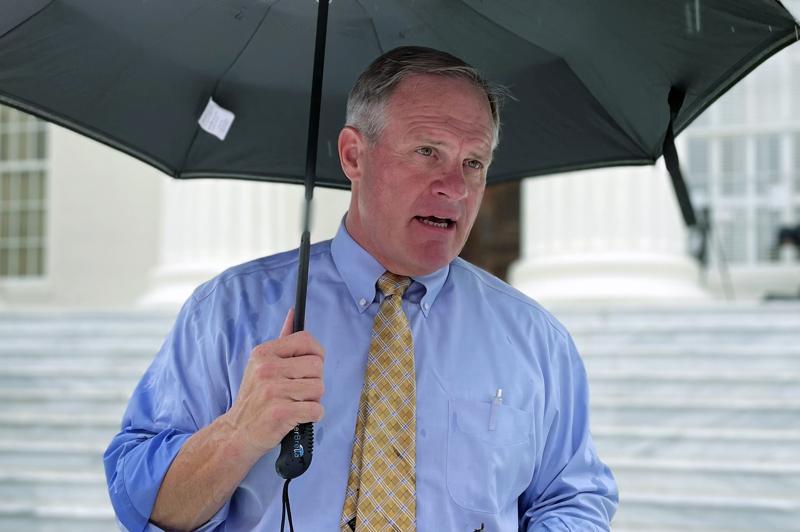
Business owner Tim James appealed to evangelical Christian voters as he opened his Republican campaign for Alabama governor Wednesday, railing against the threat of “godless Marxism,” quoting scripture and claiming God has called the conservative state to lead the nation. Standing before the white-domed Capitol with Christian music playing and beside a flag decorated with a cross, the son of former Gov. Fob James, after a prayer, attacked GOP leaders including Gov. Kay Ivey, who is seeking another term, over the approval of medical marijuana and an educational system that trails much of the nation. James, a toll road developer who has said he isn’t vaccinated against COVID-19, said Republican leaders hadn’t done enough to fight vaccine mandates, allowing one to take effect at the University of Alabama at Birmingham before the state attorney general’s office intervened. James said he would fight “casino barons” to prevent Alabama from becoming “the Las Vegas of the South.” While Alabama “has always been mocked for our values,” James said, it supported the formation of Israel years before it became a nation in 1948 and has a special place in the nation’s future. Support of Israel is a foundational issue for many evangelicals. “We stand at the gate of our state Capitol and seek God’s forgiveness for the sins of America, and we decree in the name of Jesus that Alabama will lead America in the years ahead, back to its proper position of authority amongst the nations, of which authority was granted by God at our inception,” said James, who quoted scripture. Angela James said her husband is a warrior who is prepared to lead a “crusade” and has the same evangelical zeal and spiritual discernment as his mother and father, who was elected to a four-year term in 1979 and reelected to a second term in 1995. “The apple does not fall far from the tree,” she said. James previously staked out far-right positions, including criticizing legislation that allowed students to do yoga in public schools. James ran for governor in 2002 and 2010, when he narrowly missed making the GOP runoff, finishing about 200 votes behind the eventual winner, Robert Bentley, who was elected governor that year and later resigned. Former Books-A-Million executive Lew Burdette; Lindy Blanchard, who served as ambassador to Slovenia under former President Donald Trump; correctional officer and former Morgan County Commissioner Stacy George; and Opelika pastor Dean Odle have also announced their candidacies against Ivey. Republished with the permission of the Associated Press.
Kay Ivey running for re-election in 2022
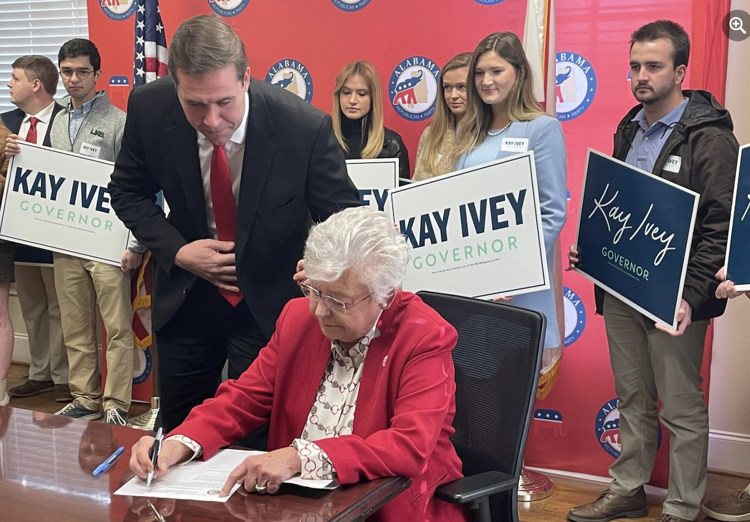
Republican Alabama Gov. Kay Ivey has qualified to run for re-election to the state’s highest office in 2022. Making the announcement via the official governor’s Facebook page, Ivey said she “enjoyed visiting with supporters” at the state Republican Party headquarters where she “qualified to run in the 2022 Republican Primary for Governor” Tuesday morning. “I look forward to asking Alabamians for their support so we can continue to deliver results to the people of our state,” Ivey said in the post. “I am proud to be your Governor and would be honored to serve Alabamians for a second term. We have accomplished a lot, but there is more that needs to be done. The primary election is scheduled for May 24. Ivey completed the paperwork and also paid the qualifying fee of $2,491.28 to run for the office. Before being elected governor, Ivey served as lieutenant governor from 2011 to 2018 and served as Alabama treasurer from 2003 to 2011. Ivy is a graduate of Auburn University, Duke University’s Governor’s Center for Public Policy, Alabama Banking School, and the University of Colorado School of Banking. She has worked as a high school teacher, a bank officer, and was Assistant Director of the Alabama Development Office. According to BallotPedia, Ivey could potentially have five other party members to beat out to win the party’s nomination. Potential opponents in the primary include Lynda Blanchard, Stacy George, Tim James, Dean Odle, and Jim Zeigler. The website names Christopher Countryman and Chad Chig Martin as candidates in the Democratic primary. William Califf, who runs Ivey’s campaign, told Yellowhammer News, that the governor has “been a fighter for Alabamians” and “has consistently delivered strong results to the people of this state. “Governor Ivey has achieved the lowest unemployment rate in Alabama history, created over 44,000 new jobs, secured record funding for our schools with record pay for our teachers, and banned transgender athletes from competing in school sports,” Califf told the news outlet. “She made substantial improvements to our state’s infrastructure, signed the strongest pro-life bill in the country, strengthened the integrity of our elections, banned vaccine passports, and the list goes on.” By Brent Addleman | The Center Square Republished with the permission of The Center Square.
Lew Burdette, former Books-A-Million CEO, to run against Gov. Kay Ivey
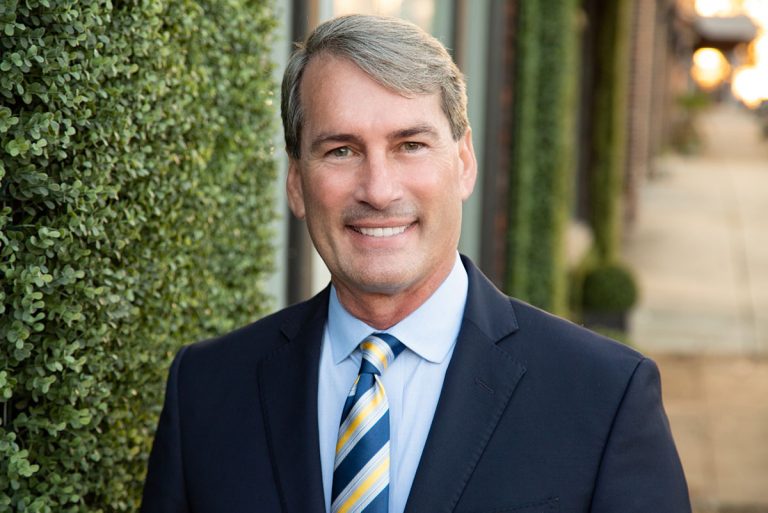
Former Books-A-Million CEO Lew Burdette, who now heads a nonprofit that provides shelters and group homes for abused women and children, announced Tuesday that he is running for governor of Alabama against fellow Republican Gov. Kay Ivey. Burdette joins a growing list of candidates challenging Ivey in the GOP primary in May. Burdette filed qualifying papers Wednesday after making his announcement Tuesday at the main campus of the King’s Home nonprofit in Chelsea, outside Birmingham. “I’m Alabama through and through. It’s just in my DNA, and it just breaks my heart that when I left the University of Alabama 40 years ago, we were at the bottom of every category — in health care and prisons and education. And here we are 40 years later, and we’re in the same spot. Nothing’s changed,” Burdette said in an interview with The Associated Press. Burdette, 63, spent 13 years with Books-A-Million — starting when it was a mall chain called Bookland — and served as executive vice president and chief operating officer. He left the retail giant in 1998. In 2002, he became the president of King’s Home, a Christian-based nonprofit organization that operates 21 residential group homes. The King’s Ranch serves neglected and abused children, while Hannah Home serves women and children fleeing domestic violence. “For the past 18 years, I’ve poured my heart and soul into fighting for abused youth, women, moms, and children fleeing domestic violence,” Burdette said. “I’ve seen countless lives transformed, given hope and opportunity, and our precious children deserve more than they’re getting in Alabama. They deserve fighting for.” In his announcement video, Burdette recalled surviving a kidnapping when he was 15. He said he was abducted outside his father’s grocery store in Roanoke, shot, stabbed, thrown down a well, and “left for dead.” “I battled for my life in the bottom of that well and only survived by the grace of God,” Burdette said on the video. Former Donald Trump ambassador Lindy Blanchard, businessman Tim James, correctional officer former Morgan County Commissioner Stacy George, and Opelika pastor Dean Odle have also announced their candidacies against Ivey. Burdette is making his first run for political office. Like other challengers to Ivey, he positioned himself as a political outsider and said he would be a “disrupter” in Montgomery. “As a political outsider, somebody who has never been involved in politics, I don’t owe anybody any favors. Nobody has influence over me. I’m going to go down there; I’m going to be an agent for change. I’m going to be a disrupter because that’s the only way we’re going to move the state forward,” he said. Asked about what he would do on corrections and health care — two of the policy areas he mentioned — Burdette said he thought better training opportunities are needed for inmates so they can have a “path for success” when they are released. He said rural areas are struggling with health care access, noting the hospital that cared for him after the kidnapping has since closed. When asked, Burdette did not say if would support Medicaid expansion — something advocates have argued would help small hospitals stay financially afloat. He said he has seen the program’s benefit to the abused and neglected children they serve, but as a conservative, he was “wary of Washington printing money.” Republished with the permission of the Associated Press.

